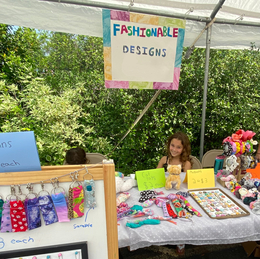
Achieving Critical Mass
Learning how to think critically at a young age helps foster success in students’ future adventures.
Aside from reading, writing, and arithmetic, one of the most important skills for kids to learn in elementary school is how to become critical thinkers.
One might say this skill is more important than ever before. In today’s environment, students are bombarded with a variety of challenges stemming from the aftermath of the COVID-19 pandemic. The majority of information students consume comes from online sources rather than libraries and research materials, including a constant stream of opinions from sources that may not always be reliable. By learning how to think critically at an early age, students can gain problem-solving abilities, determine how to make their own informed decisions, and enhance their creativity.
Ninety-five percent of respondents to a recent study believe critical thinking skills are important and should be taught at the K through 12 levels, according to the Reboot Foundation, a Paris-based organization devoted to the elevation of critical thinking. In addition, 43 percent of respondents agree that early childhood is the ideal time to develop these skills.
Anna Steinberg agrees wholeheartedly. As the founder, education director, and CEO of THRiVE: An Acton Academy, a licensed, private academic school for students in grades one through eight in Newtown, Steinberg is in a good position to judge.
“It’s important to stimulate continuous critical thinking in students early on, and encourage them to constantly be thinking about how they can solve their own problems, rather than just providing them with information and having them recite it back to us,” she says. “Therefore, a key methodology of our school is that we don’t answer questions with answers; instead, we answer students’ questions with a question right back to them, or provide them with options to pursue in solving the problem themselves.”
For example, rather than just answering a student who asks how to spell a certain word, a THRiVE guide (teacher) encourages the use of available resources to discover that information independently. Options might include referencing a printed or online dictionary, or asking a peer for assistance, as the school recognizes the impact of peer collaboration as part of the education process.
“When it comes to developing critical thinking skills,” Steinberg adds, “the most important thing is to harness the curiosity evident in students’ questions, curate interesting challenges, and give them the tools they need to drive their own education. By guiding our learners to discover answers on their own, we create a constant stream of learning through which students practice engaging in the continuous cycle of problem solving that is life.”
THRiVE has plenty of company among Philadelphia-area schools that promote the development of critical-thinking skills at a young age—and for clearly defined reasons. In addition to reinforcing problem-solving abilities, fostering independence, and promoting independent decision-making, critical thinking enhances creativity.
Every year, THRiVE provides an innovation forum through which students can display their creativity in a real-life environment: the annual Acton Children’s Business Fair. The one-day market provides an opportunity for THRiVE students throughout the community to showcase a startup business and practice selling to real customers.
Students who participate in the business fair are required to submit a detailed application. They must describe the product or service they plan to sell, how much it costs to develop their product/service, how much they plan to charge for their product/service, and how they will pay for startup costs. In addition, they must address how they intend to pay back their “investors,” and how they will advertise or promote their business before the fair.
“The business fair provides a great opportunity for students to create something that’s important to them and can fill a need or solve a problem for someone else, while giving them a chance to actually sell that product in the real world to see firsthand how money is earned,” says Steinberg. “When the students engage with market-goers who may be interested in their product, they are learning how to have a conversation and promote their ideas, and they are demonstrating not only to the community, but most importantly to themselves, that they created something valuable to such a degree that someone unrelated to them actually bought it with their hard-earned money.”
At the end of the business fair, students are asked to determine whether their business is viable. Not everyone’s business idea will succeed in its earliest iteration, of course.
“Our goal is to allow our students a chance to get their version 1.0 out the door, give them permission to fail, and pick back up again until they ultimately succeed in the way they envision,” Steinberg says. “To this effect, we aim to give them the tools and resources they need to make their own decisions and support them on the next steps in their journey, whatever that may be.”
THRiVE recently hosted another business fair—its fifth—at the NAC Sports Training Center in Newtown.
Steinberg adds, “The most important skills we can equip our students with is the lifelong ability to think for themselves, keep learning new things, and translate their excitement from early accomplishments into fuel for their next adventure.”
Acton Children’s Business Fair photo courtesy of THRiVE: An Acton Academy
Acton Children’s Business Fair photo courtesy of THRiVE: An Acton Academy
Published (and copyrighted) in Suburban Life magazine, May 2023.


